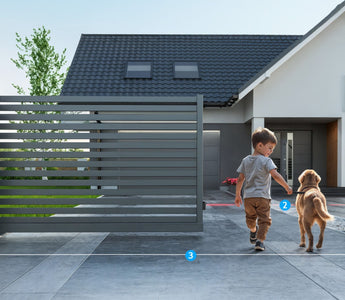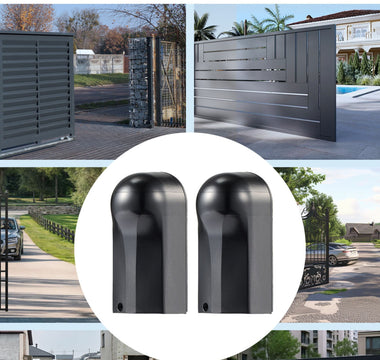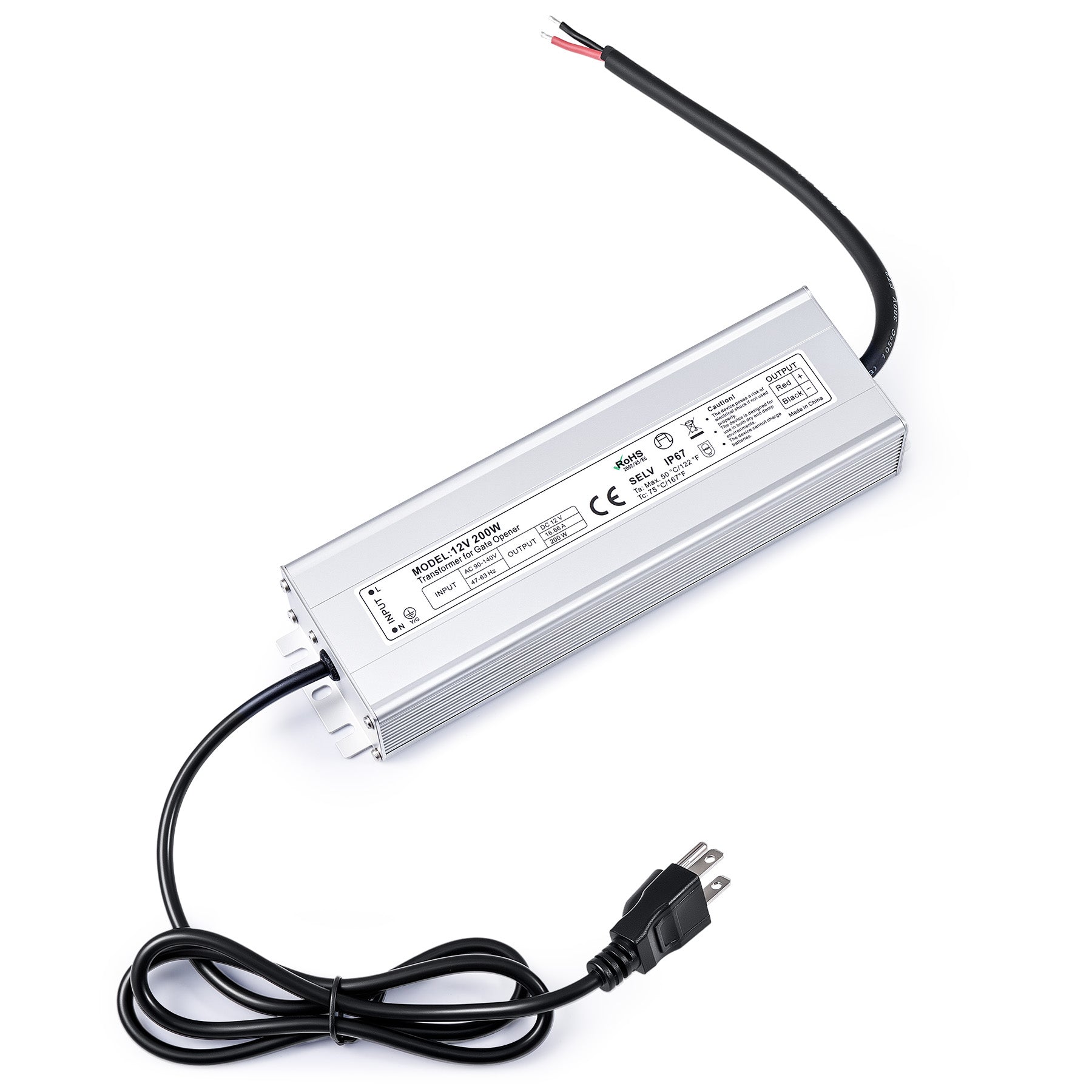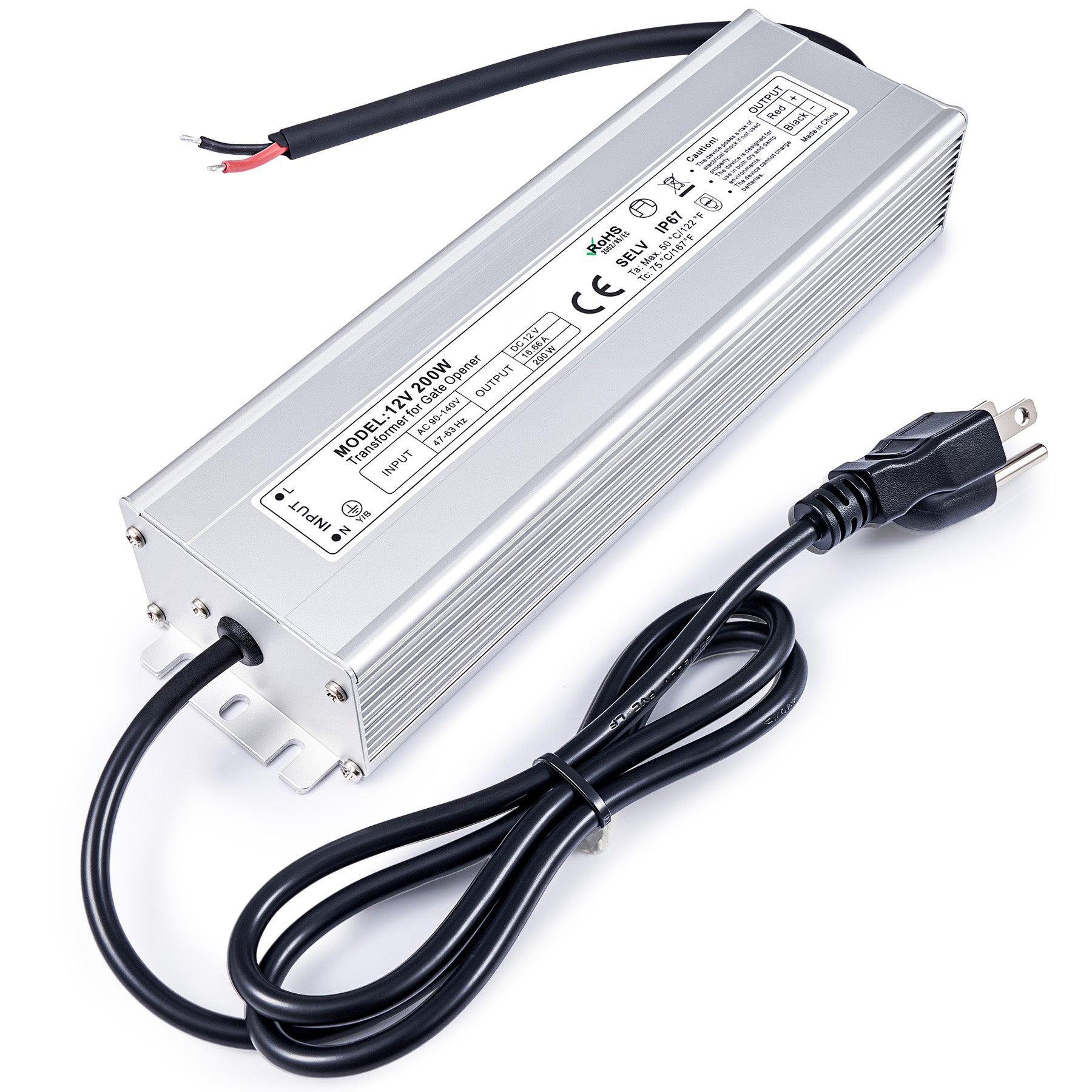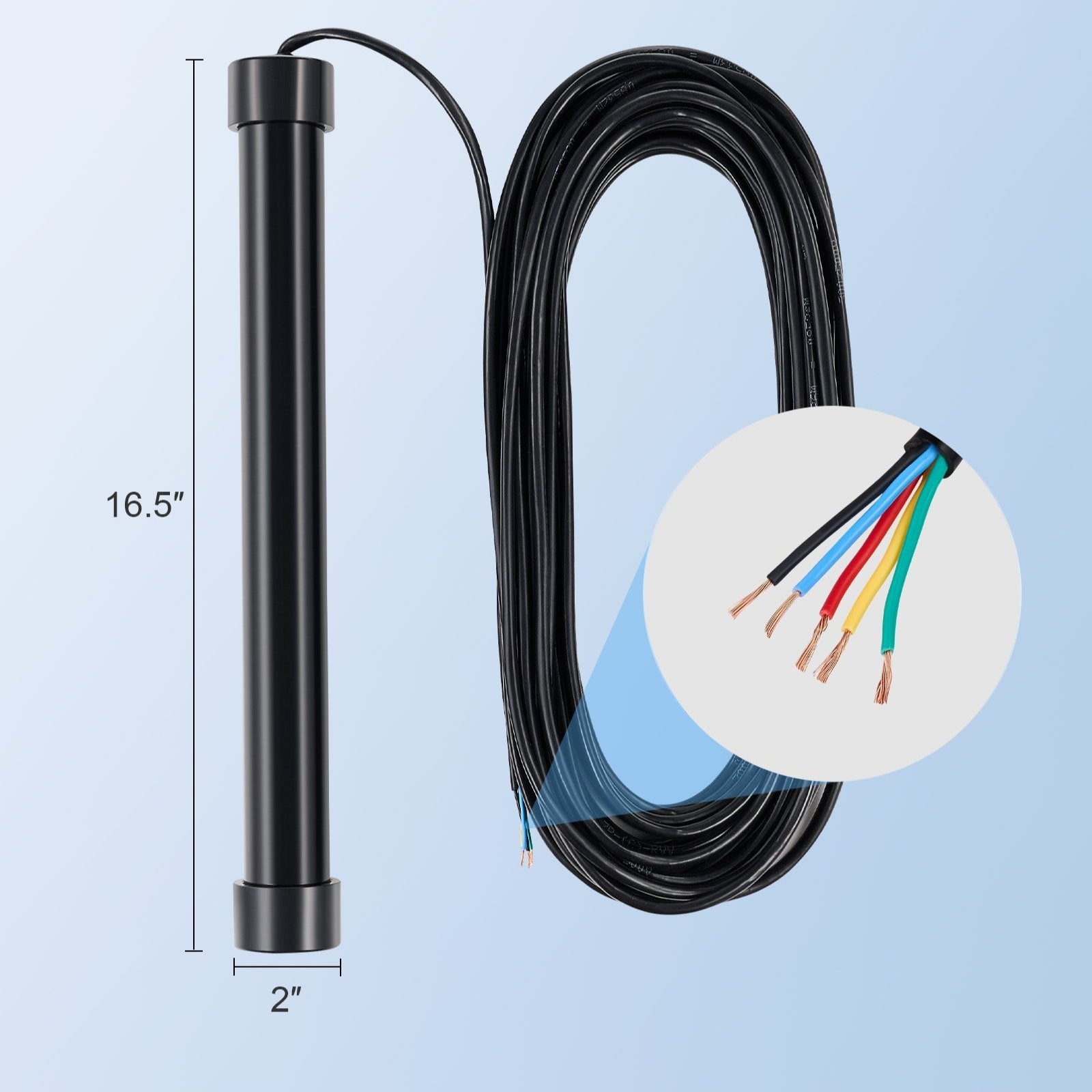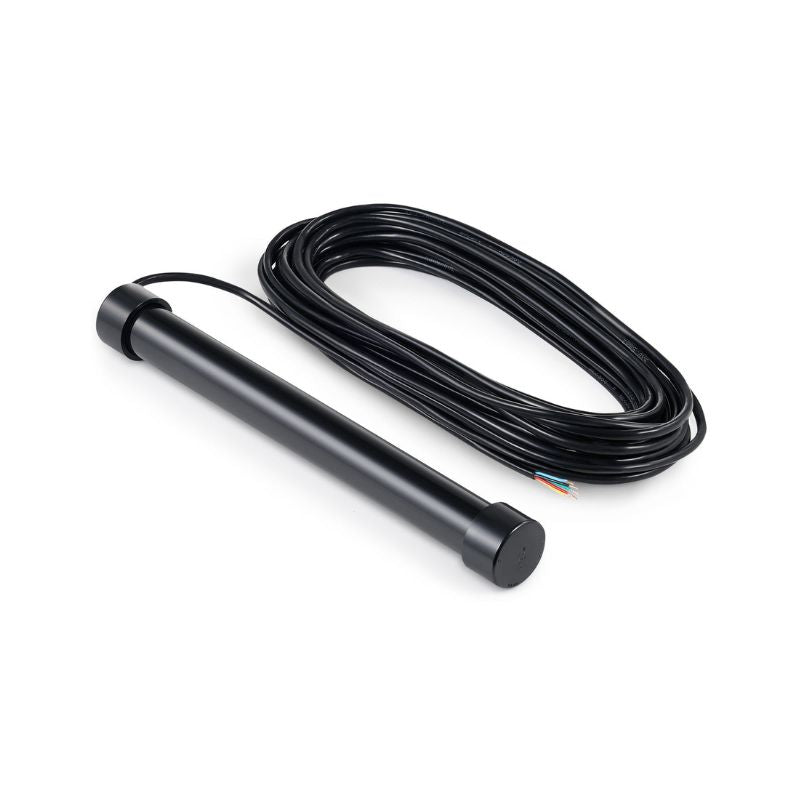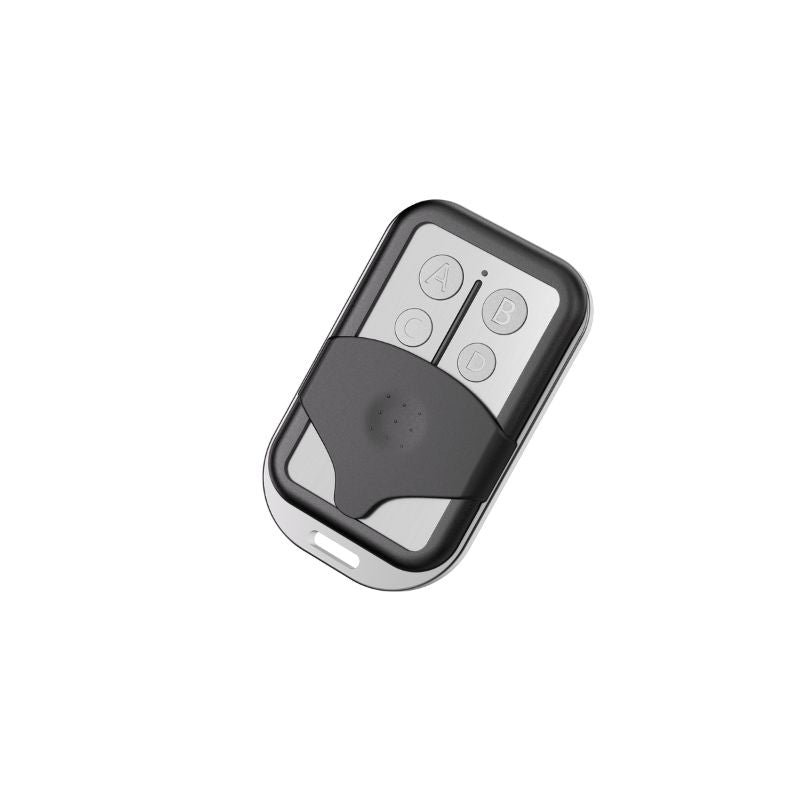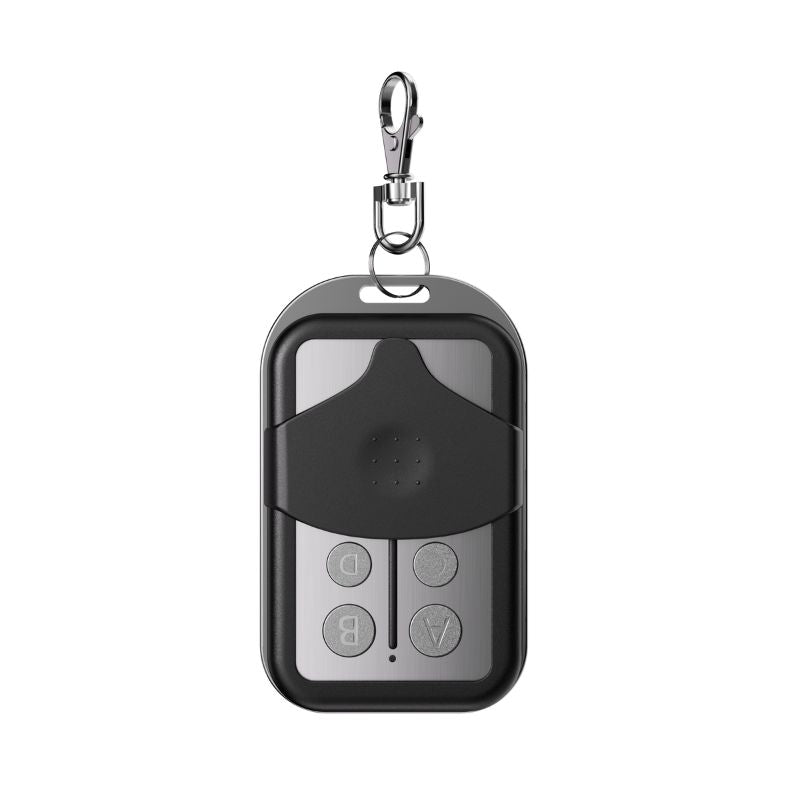As far as safety is concerned, the safety sensors are the most important components of garage door openers and automatic gate openers. They are designed to prevent the door from closing if something (like a car, pet, or even a child) gets in the way while the door is open.
Without sensors, an automatic gate/garage door opener system would instantly and irreversibly close the garage door/gate as soon as you press the remote, sending the door crashing into anything in its path, and potentially causing serious injury or damage.
With the sensors, however, you get both peace of mind and compliance with current safety regulations. In fact, safety sensors are required by U.S. safety standards (UL 325), meaning it is required by law that any modern garage door opener must have them installed.

How Does a Garage Door Sensor Work?
A garage door safety sensor works by using an infrared beam between two sensors that are placed on either side of the door near the floor.
A typical garage door sensor setup includes two small units placed on either side of the door, just a few inches above the floor. One acts as the emitter, sending out an invisible infrared beam, while the other serves as the receiver, detecting that beam.
- When the beam travels uninterrupted between the two sensors, the opener knows it’s safe to close the door.
- If something (or someone) blocks the beam, the sensors instantly signal the opener to stop or reverse the door’s motion.
It’s a simple but effective way to prevent accidents.

Garage Door Sensor Isn’t Working: How do You Tell?
The easiest way to tell if your garage door sensor is working or not is by observing the color and intensity of its indicator lights. Most garage door sensors come with small indicator lights that tell you their status. If something’s off, the lights will usually blink or change color.
Here are a few common signs that something’s wrong:
- Blinking yellow or amber light: The sensors are misaligned, or something is blocking the beam.
- No light at all: The sensor might not be getting power, or the internal components have failed.
- Flickering or intermittent signal: Loose wiring or vibration could be the culprit.
Garage Door Sensors Not Working: What To Do
If your door refuses to close and you notice blinking or dark lights on the sensors, start with a few simple fixes:
- Clean the lenses with a soft cloth to remove dust or cobwebs.
- Check alignment by making sure both sensors are facing each other directly.
- Inspect the wiring for any visible damage.
If these steps don’t solve the issue, your sensors may be too old or faulty and need replacing.
When It’s Time to Replace Your Garage Door Sensor
Sometimes a sensor stops working because of age, water damage, or general wear and tear. If you notice any of the following signs, it might be time to consider replacing your garage door sensor:
- No power or light, even after checking connections,
- Persistent misalignment errors, or
- Cracks or corrosion on the sensor housing,
Fortunately, sensors are not expensive, and replacing them can save you a lot of frustration while ensuring that your door stays safe and reliable.
What to Look for When Buying a Garage Door Sensor
If you’re shopping for a new sensor set, here are a few key features to consider:
- Compatibility: Ensure the sensors are compatible with your opener’s brand and model. For example, LiftMaster sensors may not be compatible Zumi Gate Opener or Garage Gate Opener.
- Alignment Indicators: Look for a model with LED lights that clearly show when the sensors are properly aligned or blocked.
- Durability: Choose sensors with sealed or weather-resistant housings, especially if your garage is humid or not climate-controlled.
- Ease of Installation: Adjustable brackets and clear wiring terminals can make a big difference during setup.
- Smart Features (optional): Some newer sensors integrate with smart openers, allowing you to receive alerts if something blocks the door or if it’s left open.

Garage Door Sensor For Zumi Gate Openers and Garage Door Openers
The ZUMI Infrared Sensor Kit is the safety sensor designed for Zumi products. It is built for lightning-fast response, detecting obstacles in under 0.5 seconds and instantly stopping your gate to prevent accidents or damage.
- The 0°-45° tracking angle and infrared range from 1'6" to 39' provide wide coverage for gates, garage doors, and security systems, and it is built for all-weather reliability.
- The IR sensors for the gate opener are waterproof and can withstand temperatures from -13°F to 131°F.
Installation is a breeze with intuitive instructions and all necessary screws, and we recommend mounting the sensors at least 8 inches above the ground for optimal performance.
Frequently Asked Questions About Garage Door Openers
1. Can you bypass a garage door sensor?
For some garage door safety openers, you can temporarily bypass the sensors by holding down the wall control button until the door closes. However, doing this violates safety codes and is unsafe. It is not recommended.
If you must, it must be done only after confirming the doorway is completely clear. Permanently disabling or removing sensors is not recommended.
2. How long do garage door sensors last?
Most sensors last 5 to 10 years, depending on exposure to moisture, sunlight, and vibration. Keeping them clean and properly aligned helps extend their lifespan.
3. Why do my garage door sensor lights blink even after cleaning?
If the lights keep blinking, they may still be misaligned or have a wiring issue. Double-check that both sensors are level, facing each other, and securely connected.
4. Are all garage door sensors interchangeable?
No. Each opener brand uses specific sensors designed for its system. Always check compatibility before purchasing replacements.
5. What happens if I don’t have garage door sensors?
Without sensors, your automatic door can’t detect obstacles. This poses a serious safety risk and can also make your garage opener noncompliant with modern safety standards.

Final Thoughts
Garage door safety sensors might be small, but they play a big role in protecting your family, pets, and property. Knowing how they work and how to spot when something’s wrong can save you time and help you make a confident buying decision.
When it comes time to replace yours, look for a set that’s reliable, compatible with your opener, and built to last. A few minutes of attention now can ensure years of safe and smooth garage door operation.

